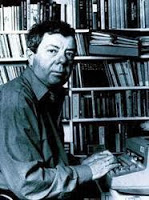British mystery writer Robert Barnard (M) has passed away at the age of 76.
According to his obituary in The Guardian, Barnard was proud to write in the tradition of Agatha Christie whose goal he believed was to entertain the reader. Robert Barnard was an academic and a novelist, lecturing and writing in Australia, Norway and Great Britain.
His novels spanned five decades with his most recent being A Charitable Body (M) published in 2012.
“Yorkshire cop Charlie Peace’s wife, Felicity, is thrilled when she’s asked to help oversee Walbrook Manor, a recent gift to the nation. It’s not long though, before both she and Charlie smell trouble. Walbrook has a lurid history of feuds and treachery that the family might better have kept to themselves. And when the wreck of a car and the remains of a woman turn up in a nearby lake, Charlie and Felicity are left to probe the sins of the past.” publisher
Detective Charlie Peace was introduced in 1989 with the novel Death and the Chaste Apprentice (out of print, try Interlibrary Loan).
In addition to this police procedural series and other stand-alone mysteries, Robert Barnard also wrote books of literary criticism and was considered to be a Bronte expert. In 2000 he published a biography of Emily Bronte (M)

